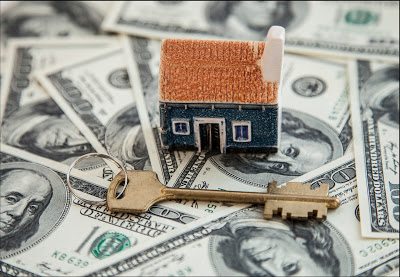Refinancing The Mortgage
 Before applying for a mortgage refinance, the borrowers should consider some important questions. Refinancing a mortgage can save the borrowers $100 or more each month depending on the size of homeowners loan and the size of their interest rate drop. But there are many factors to consider before signing up with any lender to provide this service. Those homeowners who ignore these questions and factors run the risk of erasing some of their potential monthly savings. If homeowners find the right deal, then refinancing can save thousands of dollars. However, a refinance can also be an expensive waste of time that harm the credit history of homeowners and even put their house at risk of foreclosure if they are not careful. So homeowners should avoid the risks of refinancing by understanding how mortgage refinancing works. Obtaining a mortgage may seem difficult and scaring particularly for the first time homebuyers who are unfamiliar with real estate market. If the homeowners find themselves the enormous by the complicated details of mortgages, consultation with a real estate agent, mortgage broker or lender representative for explanation.
Before applying for a mortgage refinance, the borrowers should consider some important questions. Refinancing a mortgage can save the borrowers $100 or more each month depending on the size of homeowners loan and the size of their interest rate drop. But there are many factors to consider before signing up with any lender to provide this service. Those homeowners who ignore these questions and factors run the risk of erasing some of their potential monthly savings. If homeowners find the right deal, then refinancing can save thousands of dollars. However, a refinance can also be an expensive waste of time that harm the credit history of homeowners and even put their house at risk of foreclosure if they are not careful. So homeowners should avoid the risks of refinancing by understanding how mortgage refinancing works. Obtaining a mortgage may seem difficult and scaring particularly for the first time homebuyers who are unfamiliar with real estate market. If the homeowners find themselves the enormous by the complicated details of mortgages, consultation with a real estate agent, mortgage broker or lender representative for explanation.
- What is a mortgage refinance?
A mortgage refinance unlike a loan modification requires a borrower to first pay off his current mortgage and sign a new mortgage with new terms and conditions, with all the costs and paper work that involves. Mortgage refinancing is only for those borrowers who are current on their payments and have a good credit history. Some of the borrowers use refinancing to strengthen higher interest debts such as credit cards, student loans or a second mortgage into one lower interest mortgage that has lower monthly payments.
- How long will it take to recover the refinancing costs?
Refinancing the mortgage can save a lot of money but it does not come free. There are substantial expenses involved. To calculate the break period of time it will take to pay off the refinancing costs of borrowers and start to save money borrowers need to subtract their new monthly payments from their old one. Borrowers have to subtract their monthly saving by their after tax rate to find out after tax savings. Then they have to divide their costs by their after tax savings. This will give them the number of months they must wait to start saving on their mortgage and help them to decide if refinancing is good idea for them.
- Is it cheaper to refinance with the current lender?
Refinancing the mortgage can save a lot of money, but it does not come free. There are substantial expenses involved. To calculate the break period of time it will take to pay off the refinancing costs of borrowers and start to save money borrowers need to subtract their new monthly payments from their old one. Borrowers have to subtract their monthly saving by their after tax rate to find out after tax savings, then they have to divide their costs by their after tax savings. This will give them the number of months they must wait to start saving on their mortgage and help them to decide if refinancing is a good idea for them.
- When borrowers should not refinance?
Refinancing is not a good idea when the savings made by borrowers do not cover the costs. Mortgages are designed so borrowers pay most of the interest in the early years. If borrowers have had their mortgage for ten to 15 years then they have already paid most of the interest on their mortgage. If the borrowers refinance then they will restart the process and most of their payments will go to cover the interest and increase the cost of refinancing. As well as current mortgage of borrowers has large prepayment penalties, that could cancel the savings they stand to make from the refinance.
- What are the different types of mortgages?
Most commonly mortgages vary by interest rate and length of payment terms. Interest rates can be either fixed or adjustable. A fixed interest rate stays the same throughout the period of repayment. Other mortgages offer adjustable rates which usually begin with a fixed interest rate and then change periodically that is based on the market rates at the time.
- What are FHA mortgages?
An FHA insured mortgage carries 100 percent coverage by the Federal Housing Administration. This mortgage allows the lenders to administer FHA loans with lower down payments and less strict financial requirements. An FHA loan may be beneficial for first time home buyers who can afford monthly mortgage payments and have solid credit and financial history.
- How to get a mortgage?
Before applying for a mortgage, the homeowners should be sure to shop around for the best interest rates and loan terms. They should evaluate their budget thoroughly and honestly and consider meeting with a mortgage broker to discuss their financial options. Once they have chosen a lender then get pre-approved. The pre-approval process involves a credit check and basic financial evaluation, and it will give them a general idea of how much of a mortgage they can afford. It may also make any home offers submit by homeowners more appealing to sellers.
